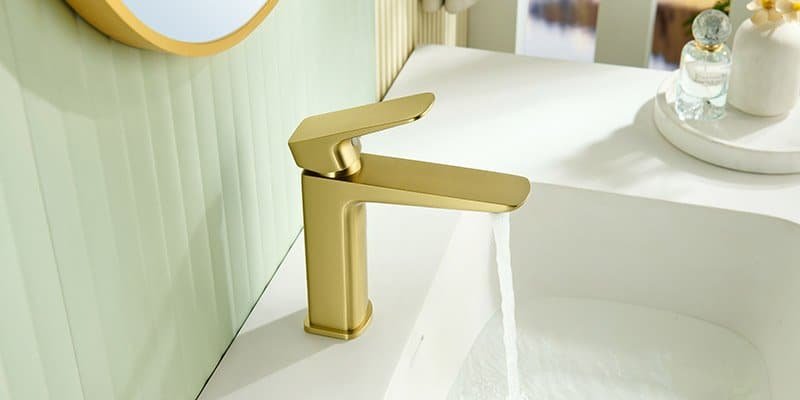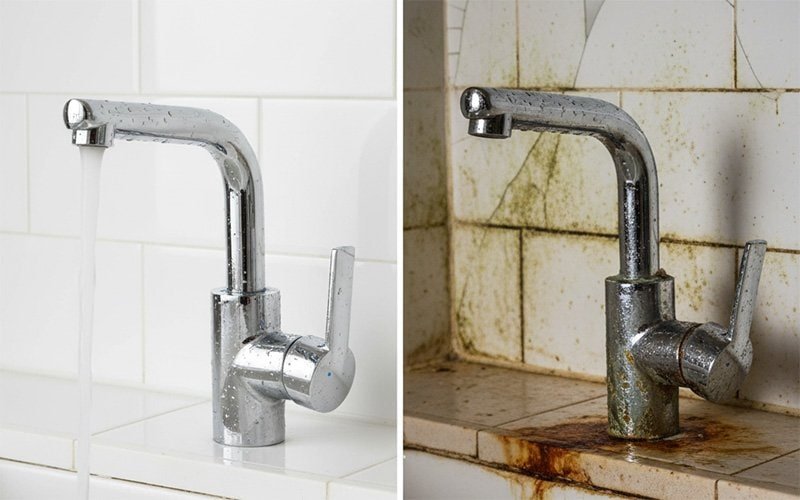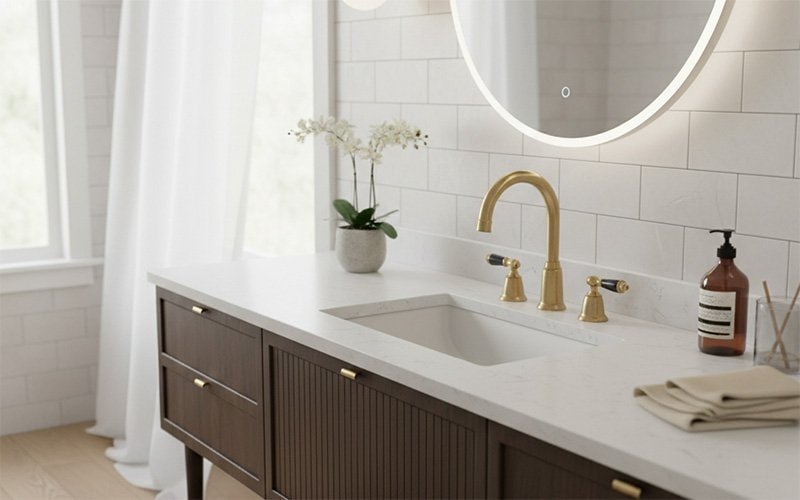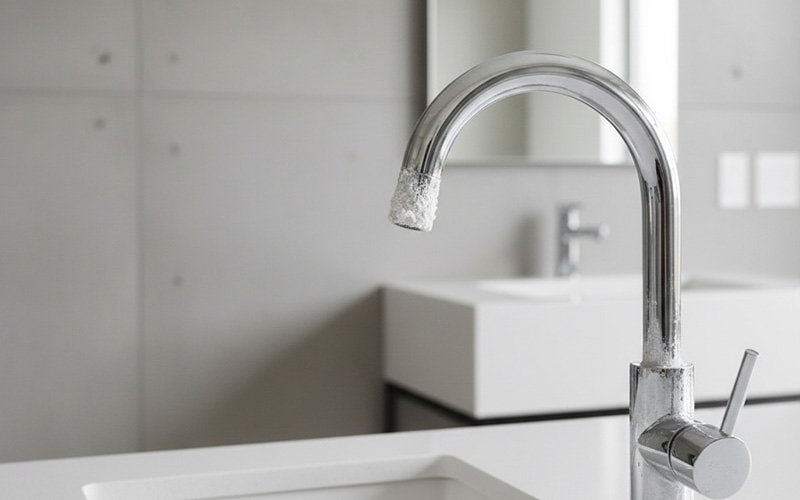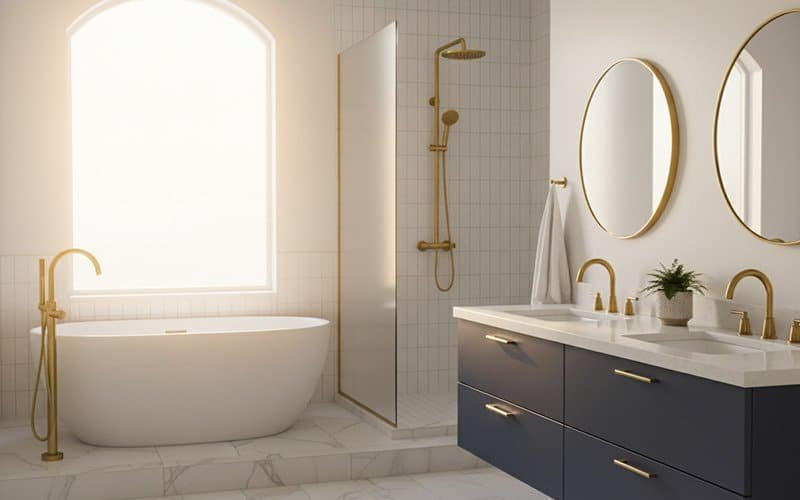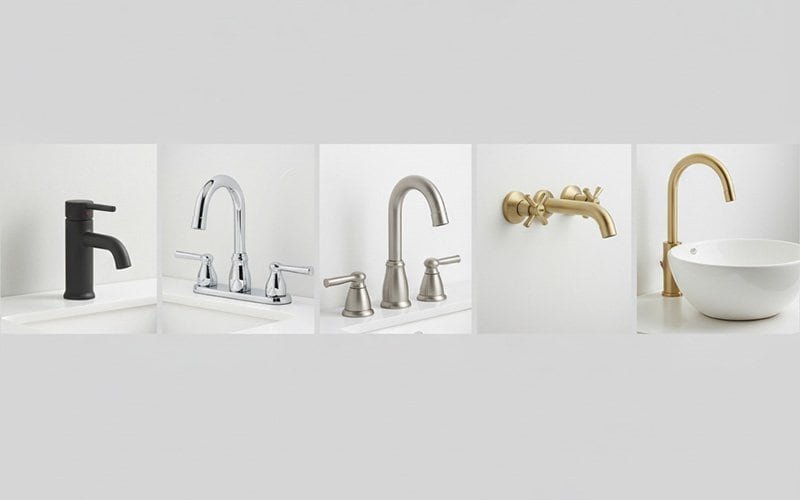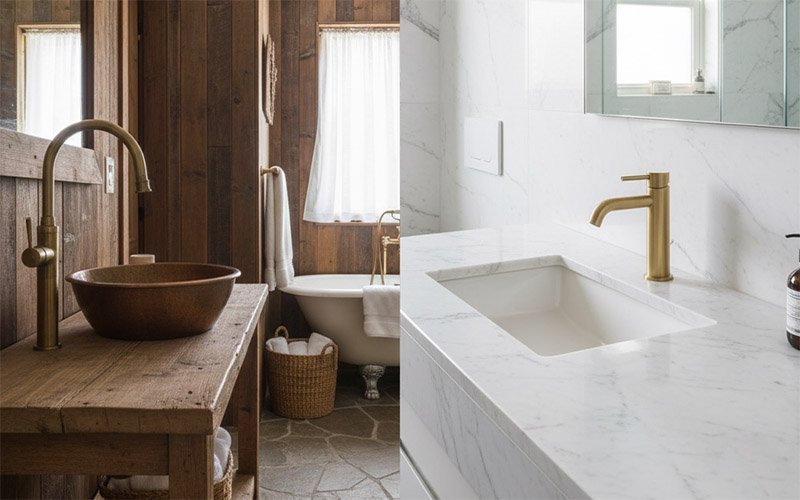
Antique Brass vs. Brushed Gold: The Key Differences
Choosing a faucet finish is a key design decision. Antique brass and brushed gold are two popular warm-toned options, but they offer distinct aesthetics for your kitchen or bathroom.
Appearance and Color Profile
The primary difference between the two finishes is their color. Antique brass is designed to look aged, featuring deep brown colors with golden undertones.
Depending on the manufacturing process, it can also have hints of green, adding to its vintage appearance.
The hexadecimal color code #cd9575 is a common representation of antique brass, a warm, brownish-orange color.
Brushed gold is a brighter, more modern finish. It has a lighter color profile that leans toward a true yellow or soft champagne tone.
This finish provides a clean, luminous look that contrasts with the darker, earthier feel of antique brass.
Texture and Feel
Texture also sets these finishes apart. Antique brass typically has a smooth, low-luster satin finish that does not reflect much light. This quality contributes to a warm, inviting atmosphere suitable for traditional or rustic designs.
Brushed gold gets its name from the fine, parallel lines etched onto its surface during manufacturing. This texture diffuses light, creating a soft, matte glow instead of a high shine. A practical benefit of this texture is its ability to hide fingerprints and water spots, which simplifies cleaning.
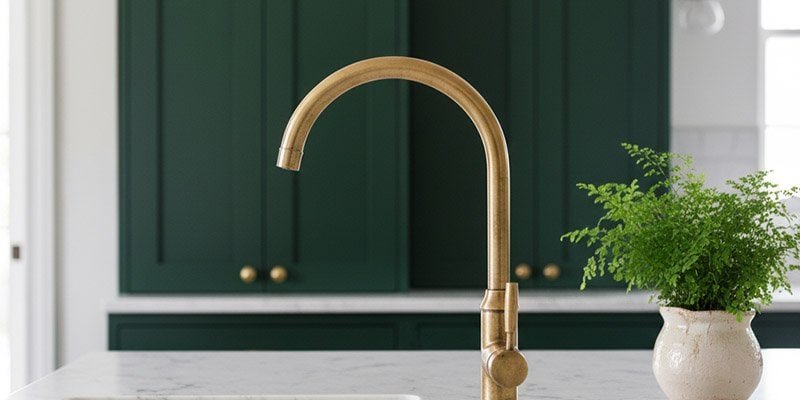
Design Trends and History
Faucet finishes follow design trends. Understanding the current market and the history of these metals provides context for your choice.
2024-2025 Faucet Finish Trends
Warm metal finishes remain a strong trend for 2024 and 2025. Brushed gold continues to be a popular choice for homeowners seeking a touch of luxury in kitchens and bathrooms. Market data shows that search volume for brushed gold and brass faucets surged in 2024 and is expected to remain high into 2025.
Interior designer Jeff McLinden notes, “What we are seeing today isn’t your grandmother’s brass. Used intentionally, today’s matte brass finishes capture warmth and sophistication in a way that will never lose its luster.”
Alongside warm metals, matte black continues to be a dominant finish for its modern look and practicality. The trend of mixing metals is also set to define 2025, allowing homeowners to combine finishes like brushed gold and matte black for a layered, custom look.
The History of Brass and Gold in Decor
Brass has been used in home interiors for centuries. It was especially prominent during the Victorian era, where it was used for hardware and light fixtures to signify status and quality craftsmanship. Its use continued through the Art Deco and Mid-Century Modern periods, solidifying its place as a classic material. This long history is why antique brass often evokes a sense of tradition.
Gold has an even longer history as a symbol of luxury, used in the palaces of ancient civilizations and Renaissance royalty. In the 20th century, gold fixtures were a hallmark of the glamorous Art Deco period. Today’s brushed gold is a modern interpretation, with a muted texture that aligns with contemporary tastes for understated elegance.
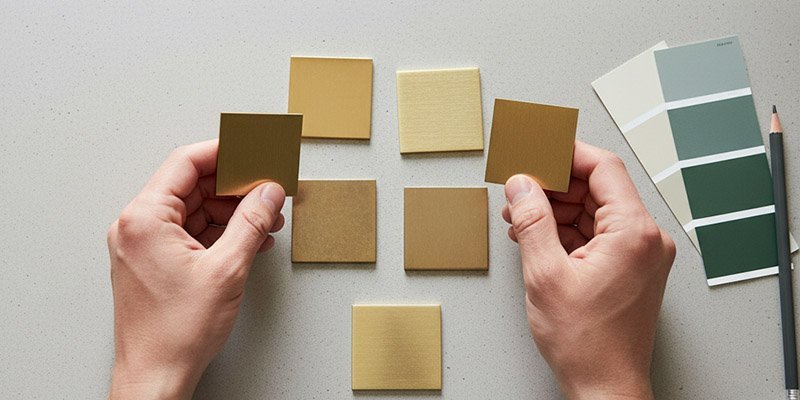
How to Style Your Faucet
Integrating your chosen faucet into your room’s design is crucial for a cohesive look.
Pairing with Cabinets and Countertops
Antique brass works well in Traditional, Farmhouse, and Rustic designs. You can pair it with dark cabinet colors like navy blue or forest green for a rich, moody feel. It also complements warm whites and natural countertop materials like soapstone or butcher block.
Brushed gold is a natural fit for Modern, Contemporary, and Art Deco spaces. It creates a strong contrast against black, charcoal, or crisp white cabinets. For countertops, materials like marble or quartz with subtle veining complement its refined appearance.
Expert Tips for Mixing Metals
Mixing metals is a popular design strategy. To do it successfully, follow a few simple guidelines.
- Select a Dominant Metal: Choose one metal to be the primary finish, covering about 60-70% of the fixtures in the room.
- Add Accent Metals: Limit yourself to one or two additional metals to avoid a cluttered look.
- Balance Tones: Pair a warm metal like brass or gold with a cool metal like chrome or a neutral one like matte black.
- Repeat Each Finish: Use each metal finish in at least two places in the room to make the design feel intentional.
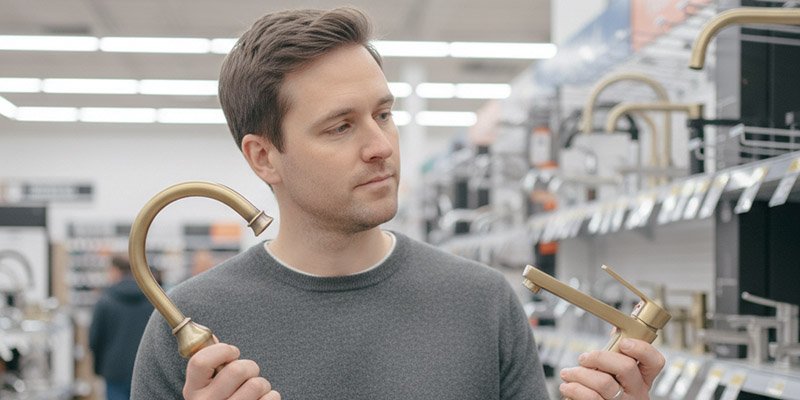
Practical Considerations: Durability, Care, and Cost
Beyond looks, you need to consider how your faucet will perform over time.
Durability and Manufacturing
A high-quality PVD brushed gold faucet is very durable. PVD, or Physical Vapor Deposition, is a process that bonds a strong coating to the faucet at a molecular level. This makes the finish highly resistant to scratches, tarnishing, and fading.
The durability of antique brass depends on whether it is sealed. Most antique brass faucets have a protective lacquer coating that makes them durable and low-maintenance. However, this lacquer can be scratched by abrasive cleaners.
An alternative, unlacquered brass, has no protective coating and is designed to develop a natural patina over time from exposure to air and water. You can learn more about the antiquing process here.
Cleaning and Maintenance
For sealed antique brass, clean it with a soft cloth and mild soap and water. Avoid abrasive cleaners that can damage the lacquer.
For unlacquered brass, you can let the patina develop or use a dedicated brass polish to restore its shine.
Brushed gold is easy to clean. Use a soft, damp cloth and mild dish soap for daily cleaning, then rinse and dry it to prevent water spots. Avoid harsh chemicals like bleach or ammonia.
Cost Comparison
Both antique brass and brushed gold are considered premium finishes and typically cost more than standard chrome.
The complex manufacturing processes and their popularity as fashionable finishes contribute to the higher price. While prices vary by brand, expect to invest more in these warm-toned finishes.
Making Your Choice
The right faucet for you depends on your personal style and practical needs.
Choose Antique Brass If
- You want a warm, cozy room with historic character.
- Your style is Traditional, Farmhouse, or Rustic.
- You prefer deep colors and natural materials.
- You want a “living finish” that ages over time (unlacquered) or a simple, sealed finish.
Choose Brushed Gold If
- You want a look that is modern, elegant, and sleek.
- Your style is Contemporary, Minimalist, or Art Deco.
- You like clean lines and high-contrast color palettes.
- You want a highly durable, low-maintenance faucet that will keep its original look.
Frequently Asked Questions (FAQ)
Related Posts



